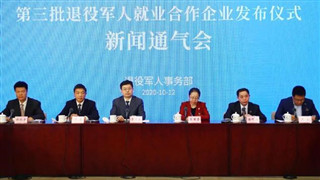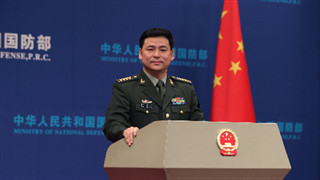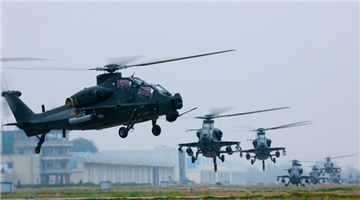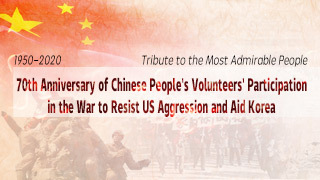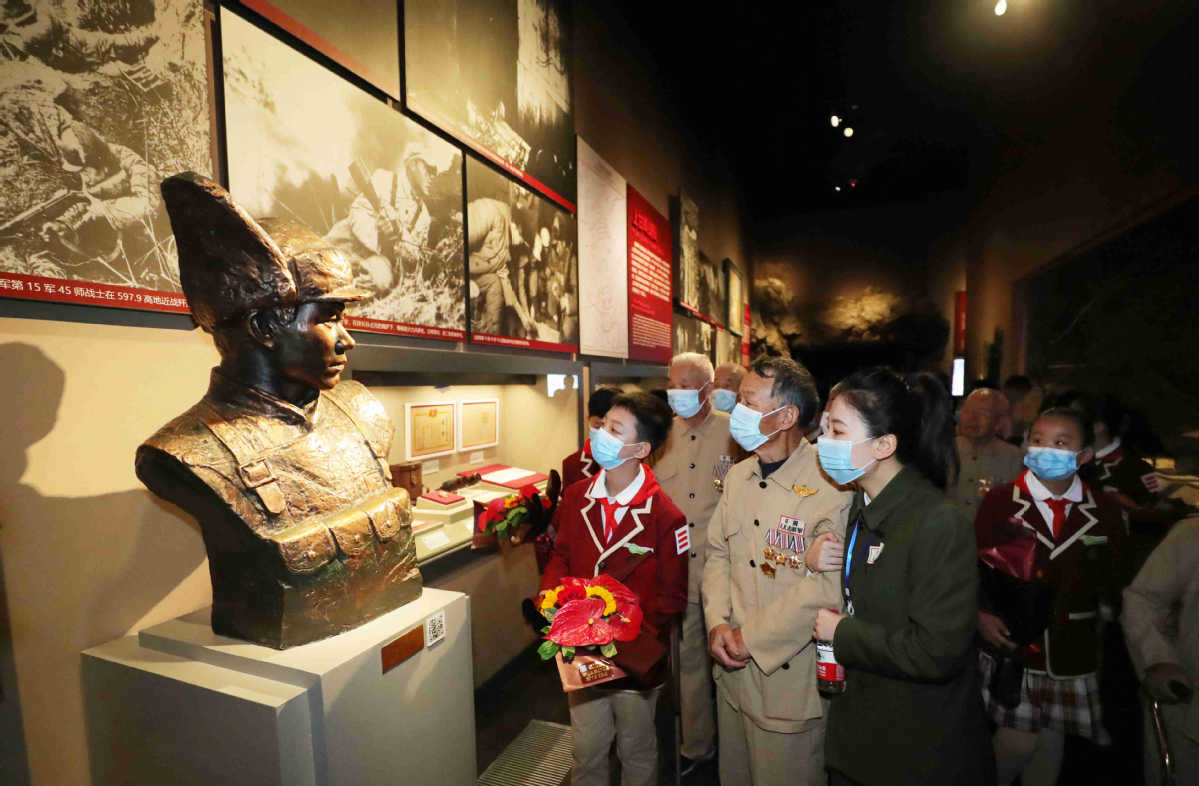
Seventh repatriation
Since 2014, China and the ROK have cooperated to repatriate the remains of 716 Chinese soldiers.
On Sept 27, the seventh such repatriation took place in the ROK at Incheon, when the remains of 117 Chinese soldiers were taken to Shenyang on a Y-20, the PLA Air Force's top transport plane.
As the plane entered Chinese airspace, two PLA Air Force fighter jets escorted it as a mark of respect to the soldiers.
At Shenyang airport, Vice-Premier Sun Chunlan attended a ceremony to welcome home the remains of the fallen, to which some of the war veterans were invited.
Xiao Huaping, an 86-year-old veteran who attended, said: "I couldn't help crying when recalling the days we fought those bloody battles. I'm proud of our prosperous motherland. All the sacrifices and dedication were worth it."
Many residents lined the route to pay their respects as a motorcade of military vehicles transported the caskets containing the remains to a cemetery in northern Shenyang dedicated to those who died in the Korean conflict.
Some 2.9 million Chinese soldiers, commanded by Peng Dehuai, fought in the war, and nearly 200,000 of them died in combat. Their names are inscribed on a memorial wall at the cemetery.
The ROK will continue to recover fallen soldiers' remains and hand them over to China. The two countries will also strengthen cooperation in this respect, according to the Chinese Ministry of Veterans Affairs.
Zhang Shunhong, a researcher at the Chinese Academy of History and vice-president of the Association of Chinese Historians, said China was forced to send its troops to fight in the war because the US ignored China's warning and took fighting to the China-DPRK border.
The US even allowed its military planes to enter Chinese airspace and bomb civilians and buildings on Chinese territory, Zhang said.
He added that the battles fought by the Chinese soldiers exemplify how a poorly-equipped military defeated a much stronger enemy.
"Compared with the forces led by the US, the Chinese People's Volunteer Army was significantly weaker in terms of weapons and logistical support capability," he said.
"But our soldiers were never afraid of death and their enemies. In many battles, after all the officers and soldiers had died, the signalmen and cooks would pick up their weapons and continue defending against the enemy, even though they were far outnumbered."
Zhang said the soldiers' heroism inspired the public in the newly founded People's Republic of China to build the nation and make their contribution to winning the war. Moreover, victory in the war took China to new heights on the world stage.
"As Peng Dehuai (the commander) said, the days when Western imperialists only needed to place some guns along the coast in an Asian country so they could occupy that nation will never return. Our soldiers smashed the myth that the US military was invincible," Zhang said.
"After the war, our nation's international status and prestige were heightened considerably, creating a favorable environment for our development."
Qi Dexue, a senior history researcher with the PLA, said that after the war, China's self-esteem and self-confidence were strengthened, along with people's patriotism and enthusiasm.
The war also made Chinese leaders realize the importance of military modernization and that no efforts should be spared to build a powerful force, Qi said.
As a result, the Chinese military's weapons and equipment were rapidly upgraded after the war and research and development started on hardware such as the atomic bomb and nuclear-powered submarines.

